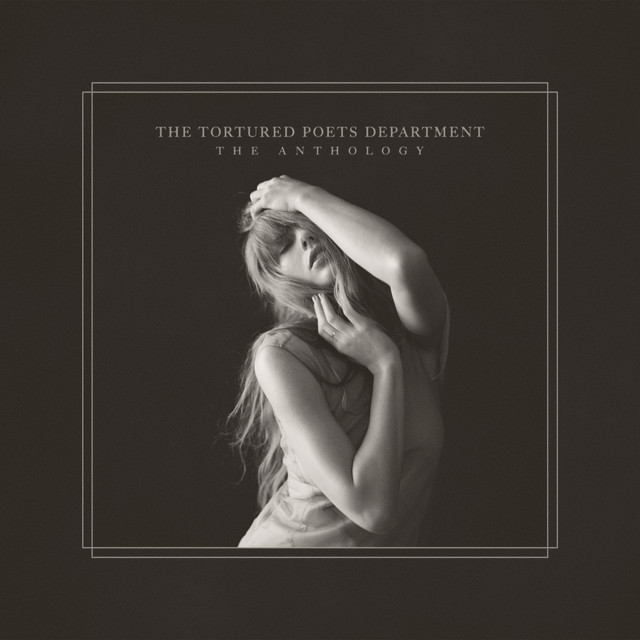
Although Sufjan Stevens’ most devastatingly tragic character studies were ostensibly molded around the lives of others, one always got a feeling that the center of gravity of songs like “Casimir Pulaski Day” and “John Wayne Gacy, Jr,” off of his 2005 masterpiece, “Illinois,” was their author. On the latter, Stevens details the unimaginable horror of the actions of one of America’s most famous serial killers, but also provides the framework through which one could analyze the factors that led Gacy to his actions.
But in the song’s final, breathtaking verse, Stevens quietly sings, “And in my best behavior/I am really just like him/look beneath the floorboards/for the secrets I have hid.” In Stevens’ comparison of himself to a serial killer lies his greatest perversion of the typical folk song structure. His songs blur the line between fiction and non-fiction, the bracingly personal and the fantastical.
On “Carrie & Lowell,” however, Stevens rids his music of any fictional pretexts. The record is a soliloquy of sorts for Stevens’ mother, who died in 2012. Stevens had a complicated relationship with his mother, who struggled with mental illness throughout her life and abandoned him and his father when Stevens was an infant.
“Carrie & Lowell” takes all sides of their conflicted relationship. It shows Stevens consumed with guilt and loneliness for not having been closer to her, but also ridden with the apprehension and confusion that seems to have marked their relationship.
Stevens lays out the complexities of his grief and listlessness through gorgeous, minimalist instrumentation. Standing in stark contrast to the lush, intricate orchestral arrangements of “Illinois” and the complex electronics of his 2010 album, “The Age of Adz,” most of the tracks on “Carrie & Lowell,” released March 31, are defined by a single instrument.
Whether it’s Stevens’ beautiful acoustic guitar or piano playing, or his stunning keyboard-driven soundscapes, every sound on this record is fully utilized. The album’s soul-baring nature doesn’t make it the easiest album in the world to delve into, but it does reveal Stevens’ most extraordinary batch of songs to date.
“I don’t know where to begin,” Stevens admits on the opener, “Death with Dignity.” Before the beautiful, melody-carrying piano line in the chorus, Stevens assures the listener that, while he doesn’t know where to begin, “(he has) nothing to prove.” It is a fittingly bleak start to a record that provides a comprehensive look at someone who falls from an insecure place to absolute rock bottom.
This slow slide starts with the ethereal beauty of “Should Have Known Better,” where Stevens brings up an instance where Carrie abandoned him at a video store when he was a small child. On the song’s dazzling outro, Stevens repeatedly tells himself “don’t back down,” while trying to convince himself that the past cannot be changed, and that he shouldn’t agonize over it.
Stevens’ love of Paul Simon is obvious throughout the album, and Simon’s melodic influence dominates the empty sexual encounters of “All Of Me Wants All Of You” and the crushing depression and grief of “The Only Thing.” On the sublime “Eugene,” Stevens desperately repeats some variation of “I just want to be near you” at the end of every verse.
After alluding to bright memories of summers spent in Oregon with Carrie and Lowell, Stevens returns, brutally, to reality in the song’s final lines. “Now I’m drunk and afraid, wishing the world would go away/what’s the point of singing songs/If they’ll never even hear you?”
The album sinks to its lowest emotional point on “Fourth of July,” which functions almost as a black hole at the center of the album. Though at first it seems that Stevens is directing the song to a dying romantic partner, it soon becomes apparent that Stevens is addressing Carrie’s dead body. As Stevens bleakly repeats “we’re all gonna die,” the album feels like it’s going to collapse under its own weight, but Stevens miraculously keeps it strong.
The instrumentation and outro of the title track are the only indications of the playful side that so many know Stevens for. But the playfulness feels like a distant memory for Stevens, a side of himself that he has long since forgotten about.
On the astonishing “No Shade In The Shadow Of The Cross,” Stevens finally seems to snap out of his emotional free-fall, opening the last verse by admitting “f*** me, I’m falling apart.” It’s a sort of mea culpa before the closure provided by the album’s final act, the exquisite “Blue Bucket of Gold.” Stevens stacks layers of keyboards at the song’s close, ending the album on a beautiful, but still unsettling, haze of sound.
It may not be easy for someone as established as Sufjan Stevens to throw everything away and start from the ground-up, but that’s what he has done on “Carrie & Lowell.” It is an extraordinary album, a full examination of grief and recovery. The listener gets to hear a world-class songwriter fade into oblivion, then attempt to build himself back again.
And while this sort of rebuilding would prove calamitous for some songwriters, Sufjan Stevens manages to paint an incredibly moving picture on “Carrie & Lowell,” without an ounce of over-extension.
Jackson Maxwell can be reached at [email protected].[liveblog]


















